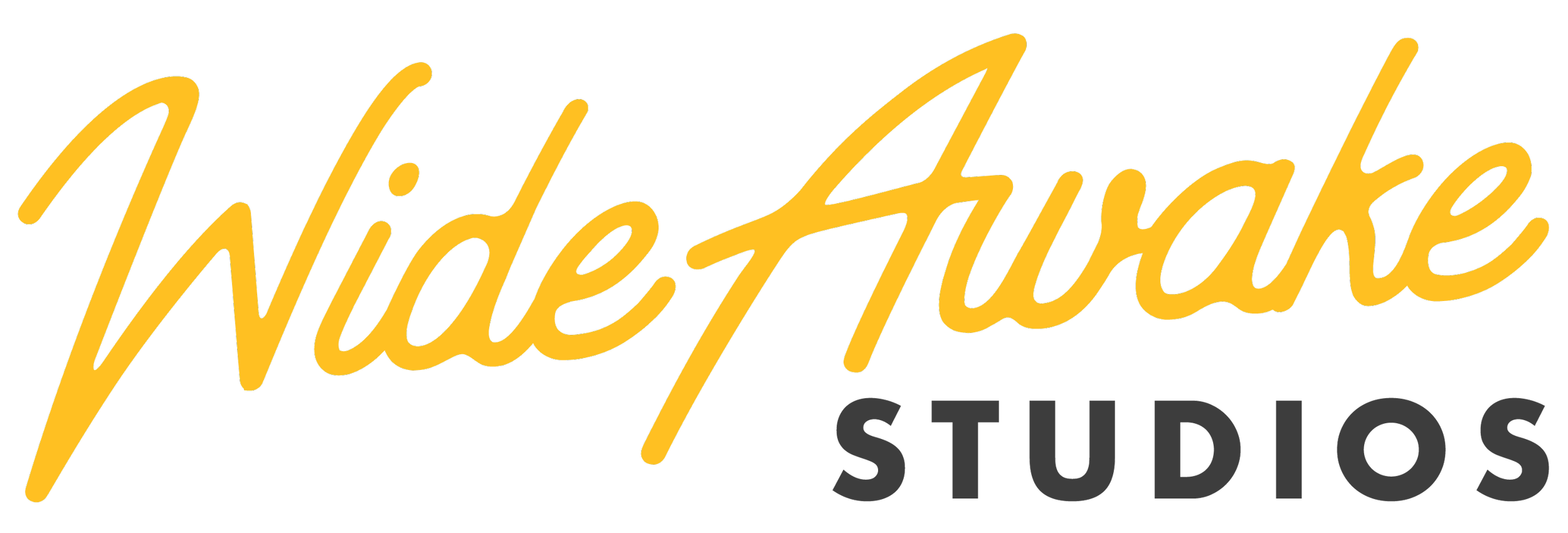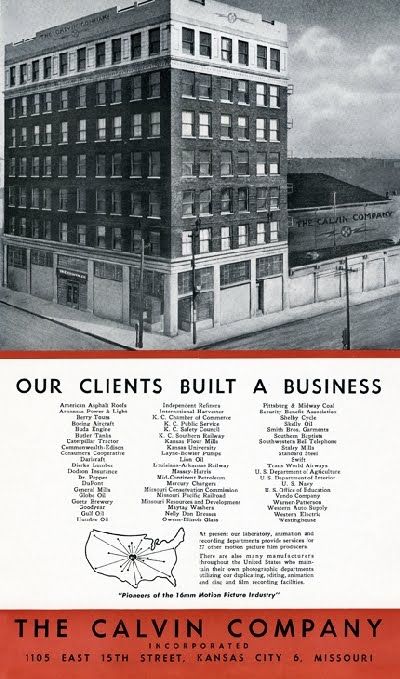Corporate Video Production Companies: It All Started in Kansas City
Corporate Video Production Companies: It All Started in Kansas City
Here at Wide Awake Studios, on our shelves of curios and artifacts acquired over two decades of work in video production in Kansas City, there sits a well-worn shipping box made of wood, with a convenient top that slides securely into place—the forerunner of today’s flat rate shipping box you can find at the post office.
The box contains dozens of glass slides made by the Kansas City Slide Company, arguably the first Kansas City production company, which produced advertisements for distribution all over the country. They were a small company, like us, with just twenty employees. So small that it’s president, A.V. Cauger, still interviewed any job seekers, including a young veteran and aspiring artist to whom he gave his first job in the business. The young man was named Walt Disney.
With Cauger’s support, Disney began to experiment with modern techniques in animation, producing short cartoons that poked fun at city life, which he sold to local theaters to play between shows. By 1922, Disney had founded his own Kansas City film production company, Laugh-O-Gram, making everything from educational films about dental hygiene, to short adaptations of old fables that bore hints of what was to come. When he ultimately departed for Hollywood, California, he brought with him a reel of his work made in KC.
While many gravitated to New York City or Los Angeles for film work, Kansas City area film production companies formed a hub that made the city into a hive of innovation. Here, motion pictures were seen not just as escapist entertainment but as a means for education and sharing information in an era decades before the internet.
Chief among these innovators were the Calvin Company, and Centron Corporation. In the mid-century, they dominated the industrial and educational film industry and helped change the face of American pop culture. These companies were some of the first film production companies that capitalized on the need for educational and industrial films. Their impact is felt even today, as many who now work in video production came from Calvin, Centron, or one of the companies inspired by them.
Calvin’s founder, Forrest Calvin, graduated from the University of Kansas with degrees in journalism and advertising and quickly began working for an ad agency in Kansas City. He became fascinated by the potential of the 16mm film format, which had largely been marketed to amateurs and home movie makers. In 1931, he founded the Calvin Company of Kansas City with his wife Betty.
What started out as a one-room ad company, became an industrial and educational film production company, and one of the largest of its kind at that. Located on the corner of Charlotte and Truman, by the end of World War II, it had expanded to 400 employees. The Calvin Company stood out among its competitors due to its non-theatrical productions and significant number of films made for some of the largest Fortune 500 companies in the country. They used notable actors and public figures in their films, including Walter Cronkite, Thomas Hart Benton, and Harry Truman, and counted among their clients DuPont, Caterpillar, Goodyear, General Mills, and John Deere. They won several hundred awards at film festivals for the dozens of films they made each year.
Because of its location, far removed from the major hubs on the east and west coasts, Calvin Films had to become a one-stop shop for Kansas City post-production. Not only did it produce dozens of films a year, it also provided services for scores of other producers, as well as creating and distributing film prints for thousands of schools, theaters, companies, and institutions. They distributed their own brand of projectors and were the first company outside of Eastman-Kodak entrusted to develop their proprietary color film in house.
Their influence didn’t just end with great films. Due to the fact that there weren’t film-specific schools or much access to film education, the Calvin Company also created 3-day seminars and a film festival that helped teach many students from all over the world. Calvin Company and Centron Incorporated were incubators for experimentation, where budding mavericks could hone their craft.
After a failed business venture and a short stint writing in California, it was with Calvin Company that Robert Altman found his first steady work as a filmmaker. The Calvin Company gave him his first opportunities as a director, where he developed his loose, collaborative style of filmmaking, with its emphasis on innovative sound and cost-effective shooting. It didn’t matter to him if it was a film about a tractor or highway safety, he treated it as an opportunity to innovate and found the style of creation that left him prepared to make his masterpieces of the 1970s, 80s, 90s, and 00s.
Many future Kansas City production companies can trace their roots to the Calvin Company. Chief among them was Arthur H. Wolf, who left Calvin to start Centron Corporation, in nearby Lawrence, Kansas. Together with co-founder Russell Mosser and principal director Herk Harvey, like Calvin they blazed a path of innovation. Harvey contributed articles to American Cinematographer on his company’s advanced use of special effects. They created films that often were shot on location around the world and used Hollywood talent on camera, all while staying on schedule and under budget. Among their scores of films was the Oscar-nominated documentary Leo Beuerman.
In 1962, Harvey leveraged his years of experience at Centron to make the film Carnival of Souls, one of the first modern horror films. It’s plot inspired George Romero (who also made industrial films in Pittsburgh) to make Night of the Living Dead, and its influence can still be seen today in classics like The Sixth Sense.
Beyond Calvin and Centron, Kansas City also served as a shipping and distribution hub across North America. Nearly every major Hollywood studio maintained a branch in the crossroads district of KC along what became known as “film row.” Movie studios would send their finished master film reels for duplication and then for transport to theaters across the country.
From here, countless prints of classic films were distributed to theaters throughout the Midwest. Even today, studios continue to store their most precious films in the Kansas City area in storage caves ideally suited for preserving our motion picture heritage. In 2010, lost footage from 2001: A Space Odyssey was discovered in one of these very caves, right in the middle of the heartland.
The Calvin Company ended its long reign as the “best in the midwest” in the 1980s, after producing about 3000 films. Centron likewise ceased to exist when it was purchased by a competitor in 1981, but their influence is still felt today in companies like Wide Awake Studios, whose founders were trained under the artisans that came from Calvin and Centron and who today carry on KC’s tradition of making innovative, information films that emphasize quality and affordability. And KC remains a hub for innovation, being the first city to host Google Fiber.
Emphasizing the impact Calvin had on the film industry within Kansas City was Bill Pryor, a former employee of the company, “When I was in college, in film production, the idea was you could graduate and go make money in the film business—in Kansas City.” Wide Awake Films is proud to maintain this heritage as the latest in a line of Kansas City film and video production companies, and we hope our legacy will ultimately be stellar as Calvin and Centron!




